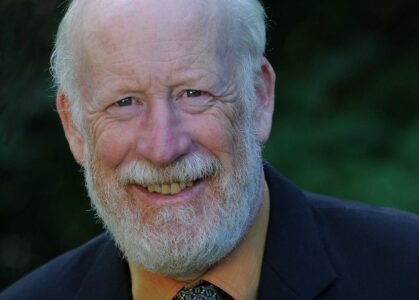Piecing together the puzzle: City delves into financial planning
What services do you want in Rossland and what are you willing to pay for them? That was the question asked during the first round of public involvement in the city’s financial planning process last Wednesday. The event attracted a modest crowd that failed to fully fill council chambers.
Each year the city revisits, revises its financial plan going forward for the next five years. The discussions (which are currently laying the groundwork for the 2011-2015 plan) are designed to set the level of services required in Rossland and to set the long term direction in terms of strategies that could sustain services and fund key projects to advance and build the community. Once completed, the plan is used to determine property tax rates for the following year.
Presenting a document designed engage residents in a discussion about the big question of what services we want and what we are willing to pay for them, Rossland CAO Victor Kumar detailed the process of setting the new financial plan and how that interacts with tax rates, offering a host of backing information along the way.
“The Report attempts to examine the long term policies and its implications on Taxation,” wrote Kumar in a memorandum to City Council. “Some policy initiatives presented might be provocative. It is presented with the view that if growth is stagnant and there is limited population growth, the key issue to address and prepare for is with this question “Can we sustain our taxation and services?” and what policies and strategies should we advance to achieve sustainability and keep the services?”
As part of the report, a detailed recent history of City revenues and expenditures was presented to provide context for the question.
Working on the assumption that unless a dramatic economic change is seen in the near future our population growth will remain flat, the report noted that “Based on the available revenues and the trends in services, transfer payments and funds required to improve infrastructure, there are very few Options available in the short term that provide changes in the property taxation and services without having significant effects on the Community, Organization and Personnel.”
Several ideas were offered, purely for discussion’s sake:
- moving to a fee-for-service-only system which would ignore assessment and in which people would pay for what they use through measured consumption on all services and utilities.
- Alternatively there could be one flat tax rate set for all residents.
- Other options to be considered could be adding a fixed annual charge to cover infrastructure renewal which is estimated to be around the $40 million dollar mark over the next 15 years.
- Beyond that the options of restructuring local government, possibly in an amalgamated scenario with other local governments or dramatically reducing service levels were offered for pondering.
The most realistic of these choices, as noted by Kumar, would be the amalgamation of Trail, Warfield and Rossland into one super city.
“A government raising $14 million for a population of 12,000 would be a lot of money. We have to ask ourselves as part of this discussion, ‘are we creating a position with three local governments that in the long run we are not economically viable as three communities?’. That’s something to consider.”
Without a change in the way the city collects its revenue (currently 87% from residential taxes) the other route would be to lower costs through service reductions and personnel reductions, or raise taxes to maintain current service levels.
Three potential scenarios, also for discussion purposes only, were presented as ways the City could reduce its expenditures and tax rates through service and personnel reductions:
- The first scenario would involve base level reductions in service from 2010 levels. The estimated impact of this scenario would be a savings of roughly $407,000 or roughly 11% of the City’s total budget. The largest of the suggested potential cuts in this scenario would be an elimination of the $62,000 in funding to the Sustainability Commission, elimination of the $40,000 in funding to the Chamber of Commerce, a $92,000 reduction in overtime and winter works, a reduction of $30,000 in funding to Tourism Rossland from $75,000 and a $34,000 reduction in legal fees.
- Scenario two looked at reductions in service using 2011 as the base year which could potentially save $300,000. In this scenario the largest cost reductions could be the elimination of the part time recreation employee position, $24,000 cut from the Rossland Library budget of $124,000 and elimination of City bylaw enforcement, saving $15,000.
- The most drastic scenario, one designed to get people thinking about what is important to them in terms of services, would be severe reductions in services, resulting in a savings of up to one million dollars a year off the City’s current budget of roughly $3.5 million. At this stage, Kumar noted that the viability of the City of Rossland would have to be seriously considered. City services would be reduced to a bare minimum and could include things such as City Hall being closed several days a week, the arena and curling rink shutting down several days a week, grass in city parks and boulevards only being mowed occasionally, bylaw enforcement being dramatically reduced and local volunteers providing technical assistance in the running of the city among other dramatic changes to life in Rossland.
The next step is to attach dollar amounts to these scenarios and present them to council.
“There won’t be any dramatic changes from the 2010 to 2014 plan with some minor changes and updates made,” noted Kumar.
From there the City will take the plan with attached dollar figures back to the public for input and present a taxation picture. That report is expected to be presented in March of 2011. Finally, next year’s tax rates will be set from that plan and adopted by May 2011.
As noted by Kumar, “These scenarios are just to provoke discussion. Sure, we can do any of these things but is that what the people really want? Would they be happy with that? Unless we get some drastic feedback from the community the services won’t see any major changes for next year.”


























